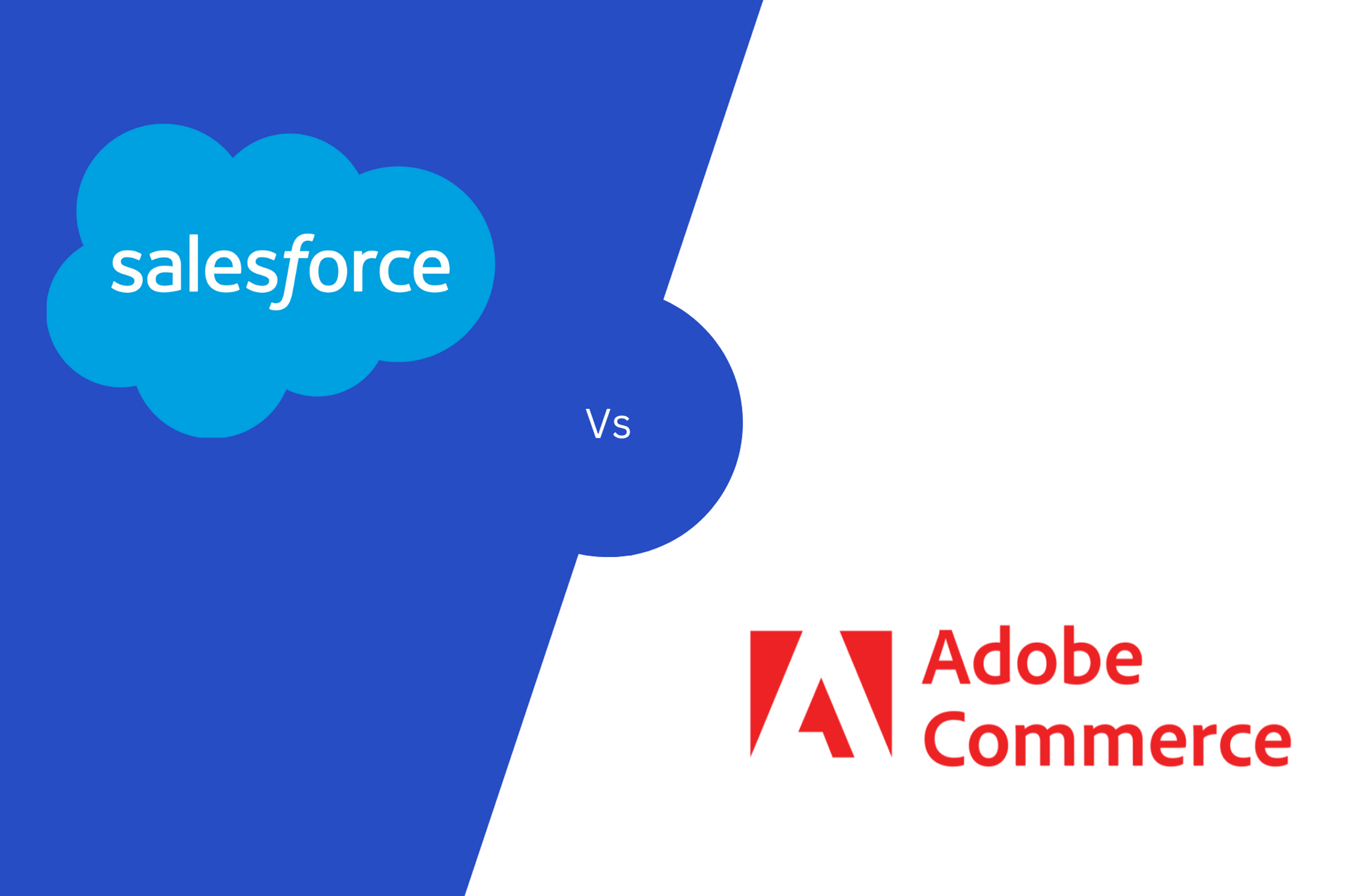Introduction
In the ever-changing world of e-commerce, selecting the right platform is critical to success. Salesforce Commerce and Adobe Commerce (Magento) emerge as top contenders with unique features tailored to different business needs. This comprehensive analysis delves into the unique features of both platforms, guiding you to make an informed decision about your e-commerce venture.
User Interface and Customization
Adobe Commerce (Magento)
Adobe Commerce (Magento) stands out for its unparalleled flexibility and user-friendly interface. Its dependability and customization options allow businesses to select from a variety of themes and extensions, seamlessly integrating their storefronts with brand identity. The drag-and-drop functionality simplifies editing, improving the user experience, especially for those without technical knowledge.
Salesforce Commerce
Salesforce Commerce’s user interface is designed for efficiency, providing a streamlined and user-friendly experience. Though it falls behind Magento in terms of customization, its exceptional efficiency makes it ideal for businesses looking for a perfect balance of simplicity and flexibility.

Looking for a platform that aligns with your unique business needs?
Performance and Scalability
Adobe Commerce (Magento)
In terms of scalability, Adobe Commerce (Magento) reigns supreme. Magento scales seamlessly to meet the needs of new and established businesses. Its robust architecture ensures optimal performance even in high-volume scenarios, making it an excellent choice for businesses seeking long-term scalability.
Salesforce Commerce
Salesforce Commerce positions itself as a platform suitable for businesses of all sizes, demonstrating inherent scalability. The cloud-based infrastructure provides consistent performance while adapting to changing business needs. While not as extensive as Magento, Salesforce Commerce provides a solid foundation for businesses looking to expand.
E-commerce Features and Functionalities
Adobe Commerce (Magento)
Adobe Commerce (Magento), a pioneer in e-commerce features, provides a variety of pre-loaded features such as secure payment gateways and advanced product management. The expansive Magento Marketplace extends capabilities with numerous extensions, allowing users to easily improve their e-commerce prowess.
Salesforce Commerce
Salesforce Commerce excels at seamless CRM integration, offering a distinct set of capabilities, particularly when intertwined with the larger Salesforce ecosystem. It provides businesses with a comprehensive view of customer interactions, despite having fewer extensions than Magento. The platform excels in features that align with Salesforce’s customer-centric ethos.
Pricing
Adobe Commerce (Magento)
Pricing frequently plays a role in decision-making. Adobe Commerce (Magento) provides an affordable option for smaller businesses through its well-known open-source community edition. The enterprise edition, which is tailored to match extensive capabilities, is better suited for larger enterprises.
Salesforce Commerce
Salesforce Commerce offers a unique pricing model for businesses of all sizes. The pay-as-you-go model allows for scalability while eliminating high upfront costs. While expenses fluctuate based on features, Salesforce Commerce offers a flexible solution within budgetary constraints.
Security
Adobe Commerce (Magento)
Security is critical in the e-commerce industry, and Adobe Commerce (Magento) prioritizes it. Frequent security updates and an alert community promote a secure online transaction environment, aligning with industry standards and building trust between consumers and businesses.
Salesforce Commerce
Salesforce Commerce puts data integrity and customer privacy first, leveraging the Salesforce ecosystem’s robust security protocols. The platform adheres to industry standards, ensuring stringent security guidelines. The integration with Salesforce security features provides an extra layer of protection.
Conclusion
The decision between Salesforce Commerce and Adobe Commerce (Magento) is dependent on your company’s specific requirements. Salesforce Commerce excels at CRM integration and personalized customer experiences, whereas Magento specializes in customization and scalability. Examine your priorities, look into features, and make an informed decision that is consistent with your e-commerce goals.

Ready to Elevate Your E-Commerce Game?
Cost-effectiveness depends on individual requirements. Salesforce Commerce offers enterprise-level solutions, whereas Magento has an open-source version. Consider your needs and financial situation to determine the best fit.
Salesforce Commerce excels at providing personalized customer experiences. Its machine learning algorithms analyze consumer behavior, allowing businesses to provide personalized sales recommendations to each customer.
Despite the complexity of migration, both platforms make it easier. Seek professional help to ensure a smooth transition without disrupting daily operations.
Magento emerges as a more cost-effective option, particularly for small and medium-sized businesses. Salesforce Commerce’s sophisticated features make it ideal for larger businesses with bigger budgets.
Yes, both Salesforce Commerce and Adobe Commerce (Magento) support a wide range of third-party integrations. However, disparities in ease of integration exist, prompting businesses to evaluate their specific integration needs.


